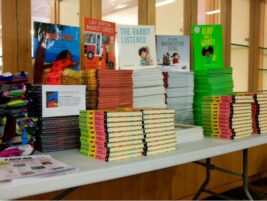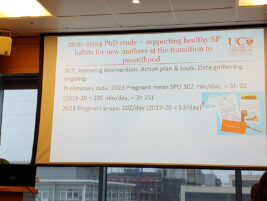When Nelson Mandela became seriously ill in June 2013 we all knew that the end of his life might be near; however, one could not help wishing for his immortality, especially when he seemed to recover sufficiently to be taken home many weeks later. Much outpouring of grief occurred during the last hospitalization with vigils, walls of flowers, tributes and prayers in churches. Once he returned to his Johannesburg home, all of this became quieter until the announcement of his final passing on 5th December. A period of intense national mourning, remembering and also celebration set in. In true African style, there was joy at his life, at what he had given and at his now being able to rest in peace. As in life Mandela managed this transition in a way so that we were prepared for it and so that we could manage it with maturity and dignity.
I need to say something about Mandela’s name: the story is well known of how his first school teacher gave him his ‘Nelson’ name, as she could not pronounce Rolihlahla and she obviously made no effort to learn, as was customary attitude of the European inhabitants of the time. Madiba, his clan name, emerged over the years to be used by all or most South Africans. It is an address which signifies respect. As a South African I feel I have the right to call him by this name. However I feel that I am not entitled to call him «Tata», which is the African word for father and which he is increasingly being called – it feels presumptuous for me, as a white person, to want to ‘own’ him in that intimate way – I wish I could, but it would seem disrespectful if I did.
More than anyone I have known about in my life it is this man and what he stood for that has enabled me to become part of a collective; a naturally more individualistic kind of person who is more comfortable being on the outside of a group than being submerged in it, I have never had any hesitation in identifying intellectually and emotionally with the ideals that Mandela represented and of being part of the society that came into being under his leadership. He is not the only person in the world who has said profound things, but he is the only person that could speak to so many. So what was it, what is it about him? What does he constellate in us that we grieve and cry; that we celebrate and feel immensely proud to be part of his legacy?
Madiba was a respectful human being – not only did he command respect, but he respected the other person, no matter the colour or creed or social standing. This is something which he learnt from the amaThembu Regent who reared him for a large part of his boyhood. «I have always endeavoured to listen to what each and every person in a discussion had to say before venturing my own opinion.» (Mandela, 1994, p.25).
The regard for self and other and the taking of responsibility are probably the highest forms of being human. This is not about power for the sake of self aggrandisement, but signifies the presence of an inner authority that is not threatened or shaken by outer forces.
These noble human values were tested by fate in a way that the old alchemists would have understood when placing their various mixtures over the fire in the hope that gold might appear. In the years of imprisonment and immense hardship these attributes were refined, strengthened, polished until they became the alchemical gold.
And South Africans were ready to see it and to celebrate the man who embodied these highest values with such genuine humility. And this is the other part of the equation that should not be omitted: the peoples of South Africa. Without their willingness to embrace what he stood for, he could not have shone as he did.
This was evident in the outpouring of gratitude that was manifest in the various memorial sites throughout the country in the 10 days following the 5th December 2013. In Cape Town one site was in the city centre, at the Grand Parade. The flags on the City Hall were half mast, the atmosphere sombre, quiet, and respectful. People of all races and all ages filed past in an orderly way, able to read the tributes and place their own on the mountain of flowers; an old, inebriated woman held forth in Afrikaans, English and isiXhosa about Madiba, giving all a sermon about his greatness and her love for him – it was both comical and sad.
One of the most touching posters was one made by two boys – next to photos of them together they wrote the following:
“Because of you, Mr Mandela, we could be friends, be in the same class at the same school. We do not have to live the way our parents did. We will never forget you.”
Ludwe Sokani and Nathan McCabe
The question that was on everyone’s lips was: Will South Africa descend into chaos after Mandela? The answer lies in the way its peoples have honoured and continue to honour him – perhaps we have each internalized his ideals; that we no longer need him as a father on this earth, but can honour him as the powerful ancestor that he has become.
References
Mandela, N. (1994). Long Walk to Freedom: The Autobiography of Nelson Mandela.
A Personal Tribute to Nelson Mandela
Authors
Berg, Astrid,
Cape Town, South Africa








